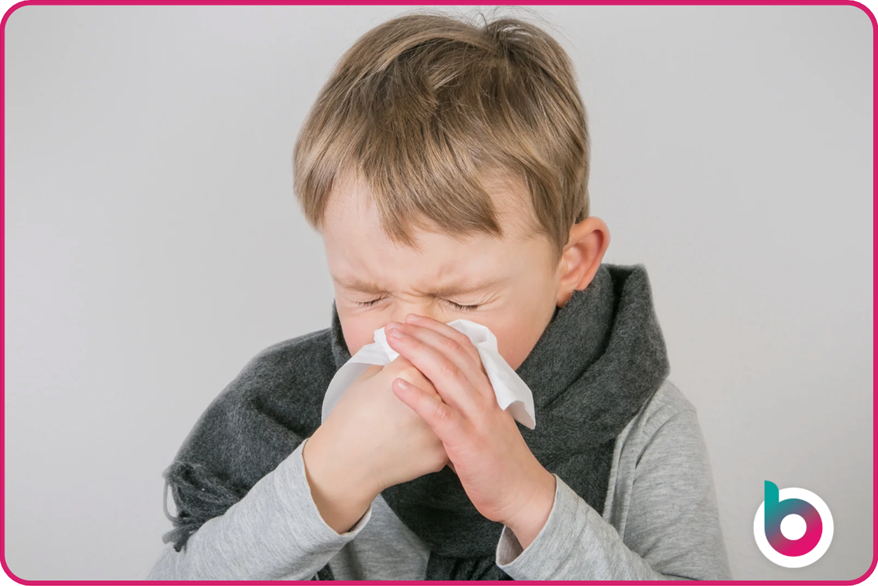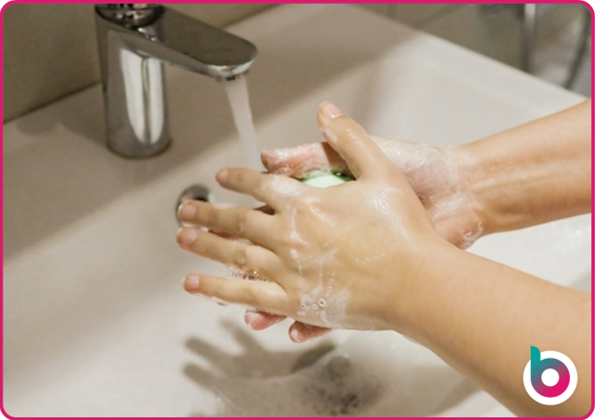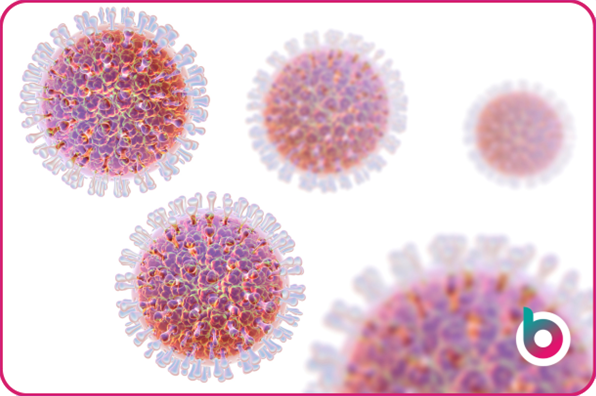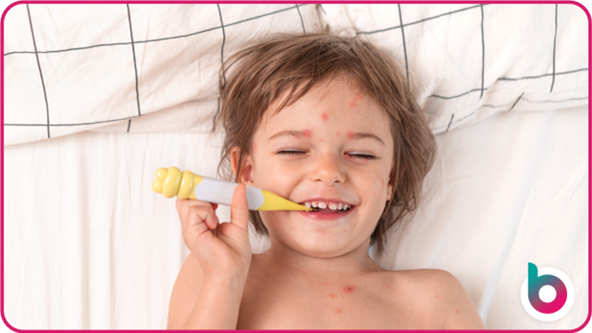When new children start nursery, their immune systems can get a shock. It is unsurprising when their main way to explore new objects is to ‘taste’ them. That means hand, foot and mouth in nurseries can be rife.
With the recent rise in cases, we thought we’d share everything you need about hand, foot and mouth disease (HFMD) for UK nurseries.
What is hand, foot and mouth disease?
Hand, foot, and mouth disease is a viral infection that often impacts children under 5. It is part of the virus family (coxsackievirus A) that the common cold, conjunctivitis, and other common illnesses come from, making it a contagious infection that is spread easily.
Hand, foot and mouth disease (HFMD) is common in nurseries due to the age range usually affected by it. Adults can catch it, but this is less common.

How does hand, foot and mouth spread in nurseries?
In short: easily. Due to the nature of babies and toddlers putting most objects in their mouths, infectious diseases like hand, foot and mouth spread quickly in a childcare setting.
Hand, foot and mouth is spread via:
- Close personal contact
- Spreading through coughing and sneezing
- Contaminating toys
- Interaction with infected body fluids (like saliva, snot, faeces and popped blisters)
What are the symptoms of hand, foot and mouth?
As with any illness, children can experience different levels of severity. Certain factors may determine how mild or severe their symptoms are for hand foot and mouth.
For example, suppose a child has a poor immune system due to an ongoing medical condition. They may experience the symptoms more severely – just as they might with any infectious illness, like a common cold.
The symptoms often present initially as:
- A fever (a temperature above 38°C)
- A sore throat
- A lack of appetite
A few days later, secondary symptoms may appear:
- A rash on their feet, hands and sometimes legs, bottom and groin area
- Mouth ulcers
- The rash may turn into blisters that are sore to touch
The rash may be red on lighter skin. For a child with a darker skin tone, it will be a contrasting colour to their usual skin tone.
Doctors won’t usually prescribe medication for hand foot and mouth, and it’ll generally clear up on its own within 7-10 days. Over-the-counter medication safe for toddlers (like Calpol and Nurofen for children) may be given to relieve pain and discomfort in the affected areas.
Top Tip: Nose areas can often be a hotspot for rashes and blisters, making wiping painful and uncomfortable. A warm cloth or wet wipe can often be more comfortable than a harsh tissue for wiping.
Can children go to nursery with hand, foot and mouth?
It’s probably best if they don’t. Though hand, foot, and mouth can be spread before symptoms are visible, the first five days after symptoms start are the most contagious.
However, it’s not required to keep children off nursery if they have hand, foot and mouth – unless your nursery policy says otherwise.
Some settings have policies on common infectious diseases like hand, foot, and mouth due to the impact these can have on the whole nursery, so it’s important to share the policies with parents as soon as they join the nursery.
Regularly reminding parents of your nursery policy for common diseases can help reduce the risk of nursery-wide infection and disruption to routine.

NHS guidance on hand, foot and mouth
The NHS guidance states children don’t need to stay away from nursery whilst they have hand, foot and mouth. As per most nursery policies, if the child is too unwell to be in nursery, they will likely stay home. This includes when children have a fever.
Your nursery setting should have a risk assessment in place to protect any pregnant members of staff (and parents). Hand, foot and mouth are common in UK nurseries, so having plans during peak illness season is useful.
Peak illness times in nurseries:
- When new starters join
- The changing of the seasons
- Following a peak of another illness (like Chicken Pox)
Your nursery's hand, foot and mouth policy
Despite the NHS stating no exclusion period for hand, foot and mouth disease, many nurseries have different policies.
But due to the impact on other children and families, many nurseries enforce exclusion rules on children with HFMD.

Some settings require:
- Children to have no fever (without the help of medication) for 24 hours before returning
- Children to be able to fully participate in nursery activities without excessive saliva (due to the mouth ulcers)
- Children to stay at home until the blisters have healed
- Children not to bring in toys or items from home due to increased contamination potential
- Parents to treat the HFMD illness as they would Chicken Pox (some nurseries require the blisters to be dried out for a minimum of five days before returning)
How to handle a suspected hand, foot and mouth case
Depending on your setting’s policy, you will likely inform parents as soon as possible. Good communication with your nursery families helps reduce anxiety and build trust in your setting’s approaches to illness control.
Most settings using nursery management software will send a message through the app to ensure all key family members see the announcement. Others may place a sign on their door to share with parents when they come to collect their child.
To reduce the amount of questions your nursery team is faced with following an announcement of confirmed or suspected cases, it can be helpful to share the NHS guidelines along with some frequently asked questions. You can also share this article as a summary of the illness.
Here’s a suggested message to send to your parents to notify them your setting is dealing with hand, foot and mouth:
We are currently dealing with hand, foot and mouth cases in the nursery.
To help control the infection, we have enhanced cleaning procedures across all rooms. We ask that you help to reduce the spread of the infection by:
- Only entering the nursery building if necessary
- Washing your hands upon entry or using the hand sanitiser provided
- Notify us if your child demonstrates any symptoms
- Keep your child off nursery if they are experiencing a temperature of 38°C or over
If you have any questions, please see our policy on infectious diseases and contact the nursery manager via our communication platform.
Thank you,
The nursery team

Common myths about hand, foot and mouth disease
Can it make animals ill?
The hand, foot and mouth disease found in UK nurseries is not the same disease that affects livestock (foot and mouth disease). This includes household pets like cats and dogs.
Can adults catch hand, foot and mouth disease?
Yes, adults can catch hand, foot and mouth disease, although it is an illness most commonly found in children under 5. In rare cases, adults can catch HFMD but it isn’t a cause for concern.
Can doctors prescribe medication for hand, foot and mouth?
HFMD commonly clears by itself in 7-10 days. Over-the-counter medication may be given for pain relief or mouth ulcer treatment(after appropriate advice from a pharmacist or GP).
Should my child stay off nursery?
This depends on your nursery’s policy for this disease. The NHS state it is not an infection that requires isolation, however many nurseries may treat HFMD similar to Chicken Pox and require your child to stay off nursery until the blisters have dried.